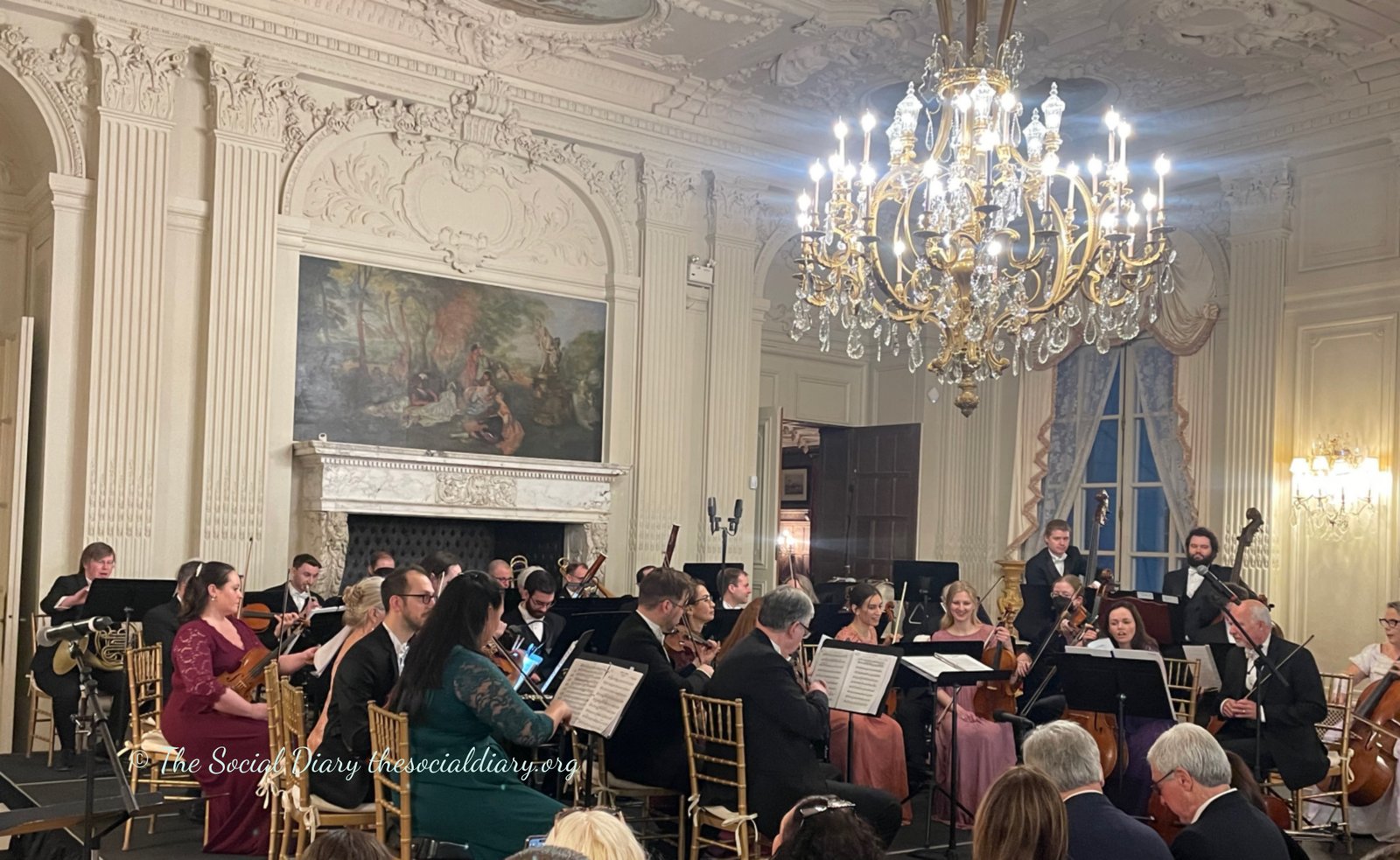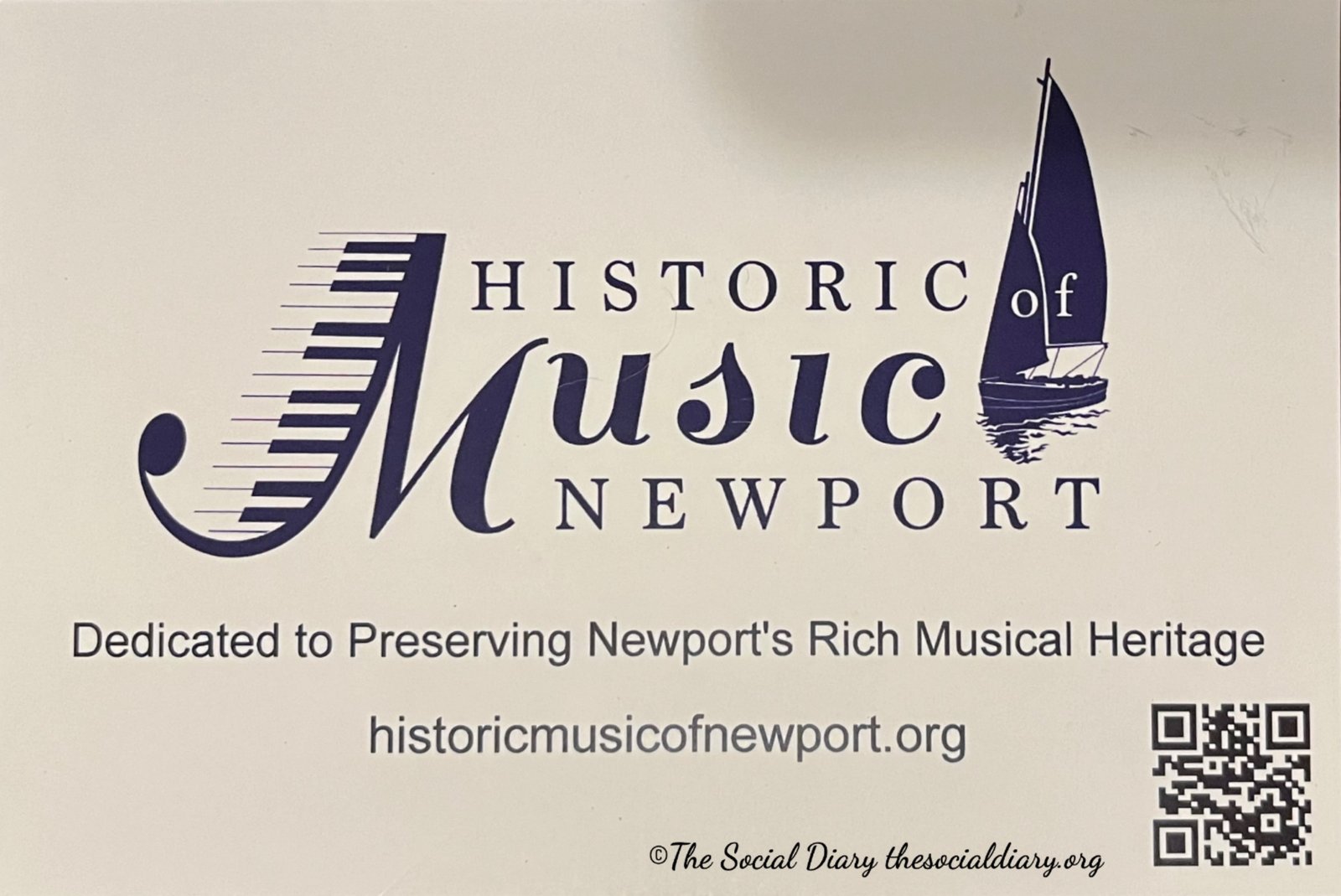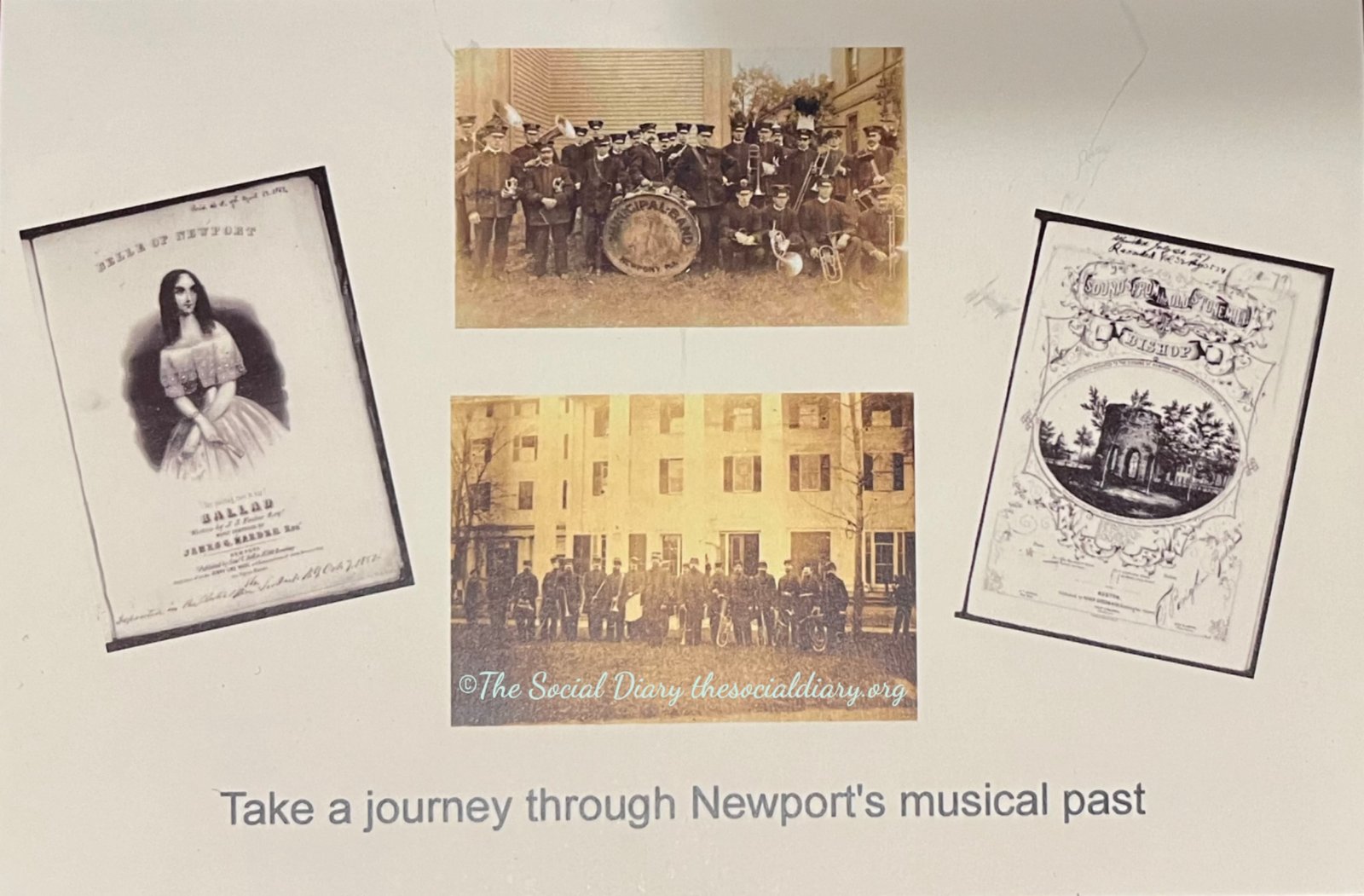
The beautiful ballroom at Rosecliff transformed as the Gilded Age Orchestra of Newport took centre stage. A delightful medley in music and song ensued, transforming guests to a bygone era. Moreover, some of the guests for the evening’s programme arrived in Gilded Age inspired fashion.1
Gilded Age Orchestra
‘Breaking the Glass Ceiling’
The male musicians replicated attire of the period, the white tie and tailcoat.
The female musicians held their own. Additionally, sumptuous gowns were the order of the evening, and they participated in the nines. The songstress, Sarah Yanovitch-Vitale glistened in a blue beaded gown with a train. Moreover, her vocal range and ability to convey emotion through song was captivating.
Today female musicians enjoy unprecedented success in once male dominated orchestras. They literally had to ‘shatter the glass ceiling‘ in order to be accepted. It wasn’t until 1913 that they achieved this.
Lead Educators
Leading the Gilded Age Orchestra of Newport and the lectures were Drs. Mark A. Stickney and Christopher Brellochs, in addition to Anthony De Luca. One has to jot down notes just to keep up. There was plenty of historic information. For example, Pirates of Penzance first played to audiences in 1879! So, how appropriate the evening began with Gilbert and Sullivan operetta (1878-79).
The musical programme at Rosecliff included Gilbert & Sullivan, Gounod, Tchaikovsky, Coleridge-Taylor, Alsdorf, Strauss, Széchényi, Shubert, Gung’l and Lumbye.


Gilded Age Orchestra: Black Elites
Julian Fellowes’ rendition of The Gilded Age on Max/HBO in the United States covers the story of the Scott family. This storyline represents how important the black elites were during the Gilded Age. Many have risen to great success professionally, after the reconstruction era. In the television show, the Scott family own a very successful pharmacy in Brooklyn. This also gives Peggy Scott the opportunity to pursue her interests in writing and journalism.
Samuel Coleridge-Taylor
One of the popular black elite composers was Coleridge-Taylor. He is known for “Hiawatha” Overture, trilogy of Cantatas. It’s based on a poem by Longfellow. In addition, his African roots inspired “Deep River,” a piano version of an African-American spiritual.
According to the evening’s education, Coleridge-Taylor’s father, who is from Sierra Leone, did not know about his birth. His maternal family raised him, and this supportive structure provided benefits in his development as a composer. For instance, his musical gift was apparent and recognised at a young age. He studied at Royal College of Music from age 15. His grandfather, who also played the violin, paid the tuition.
President Theodore Roosevelt invited Coleridge-Taylor to the White House in 1904.
Ulysses J Alsdorf
The Alsdorf Family was a well known musical household in the Hudson Valley. Alsdorf was born in the Hudson River town of Newburgh, N.Y. He was the grandson of slaves who adopted the surname of their former Dutch owner. His grandparents, George and Caroline ran several successful businesses. These included a hair salon, bakery and catering business. Moreover, they were able to send Alsdorf’s father, Dubois, to study music in New York city. His father eventually opened up the Alsdorf Dance Academy.
Alsdorf and his brother were the first black students to attend and graduate from Newburgh Academy.
Alsdorf successfully conducted his own orchestra for 44 years. His composition, “Dear Hudson Fulton Days” was on the evening’s programme.
- Gilded Age Orchestra of Newport performed at Rosecliff on Thursday, February 29th. Pranzi catered the post programme reception. ↩︎
